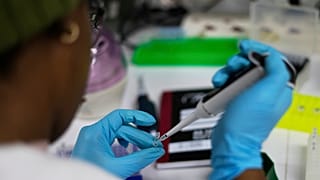Switzerland
Global health initiative, Unitaid, says it is making a $31 million investment to prevent hepatitis C among people who inject drugs, and other at-risk populations such as those in prison.
Marginalized groups are disproportionately affected by the blood-borne disease, which can cause serious liver damage and cancer when left untreated.
Four in ten people who inject drugs and one in four incarcerated individuals have active hepatitis C infections.
Unitaid says there are now highly effective treatments that are affordable in most low- and middle-income countries, where 80 per cent of people with the virus live.
Yet most of them do not have access to care.
Its funding will support efforts to reach these people by incorporating testing and treatment into harm reduction programmes.
At the same time, it will trial the use of two underused products aimed at reducing risks associated with injecting drugs.
Both will be tested in Egypt, India, Kyrgyzstan, Nigeria, South Africa, Tanzania, Ukraine, and Vietnam.
The prevention tools and approaches will also help prevent transmission of other blood-borne diseases including HIV.










11:18
Narrative Sovereignty: Africa Reclaims Its Global Voice {Business Africa}
Go to video
Kenyan court halts rollout of $1.6bn health deal with the United States
00:49
French footballer Paul Pogba announces investment in camel-racing team
01:43
US-Kenya $2.5B health deal targets HIV, Malaria and Polio
01:11
Malaria deaths, cases surged in 2024 with gains at stake - Report
00:00
Pope Leo says he hopes to visit Africa in 2026 as he wraps up his first foreign trip